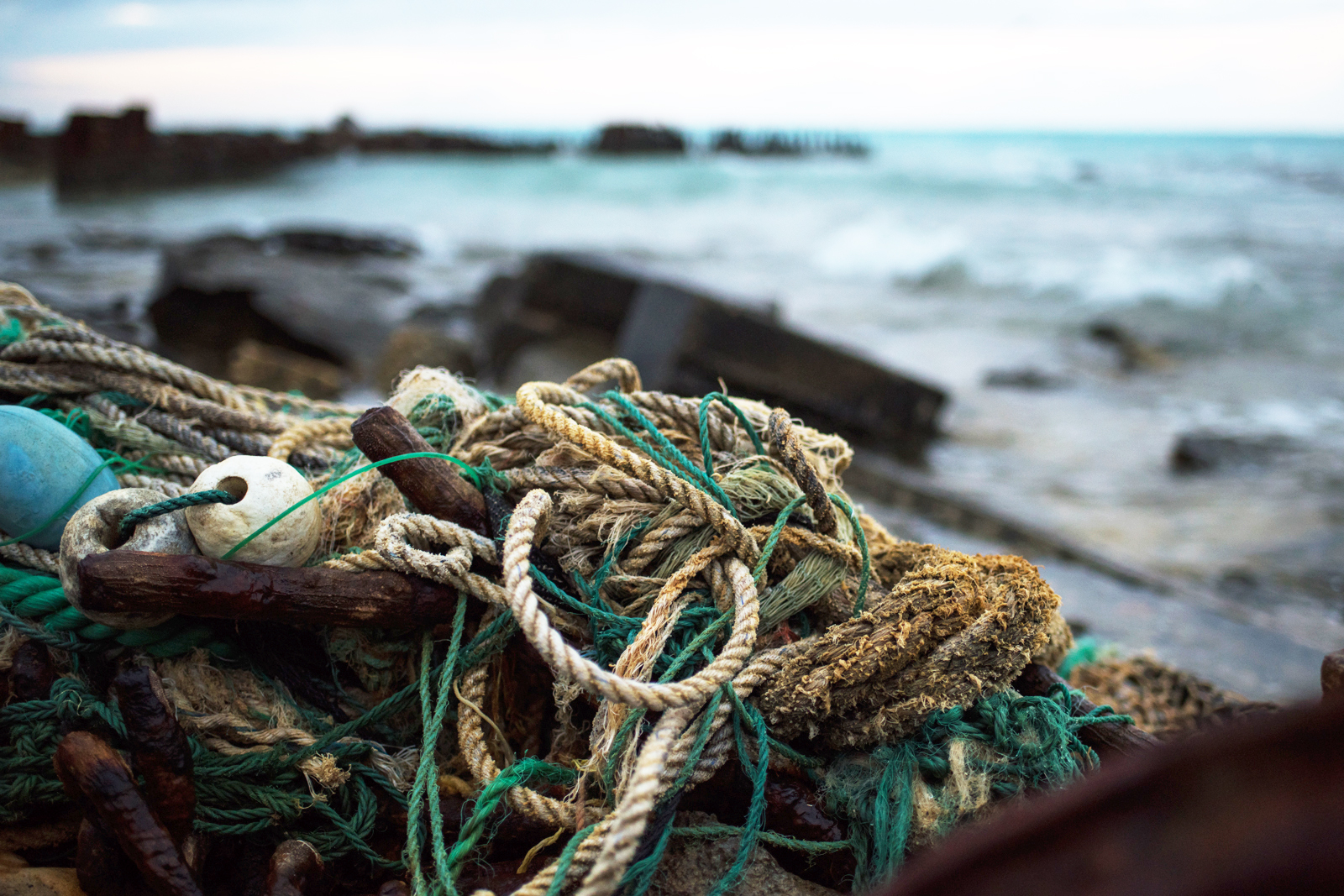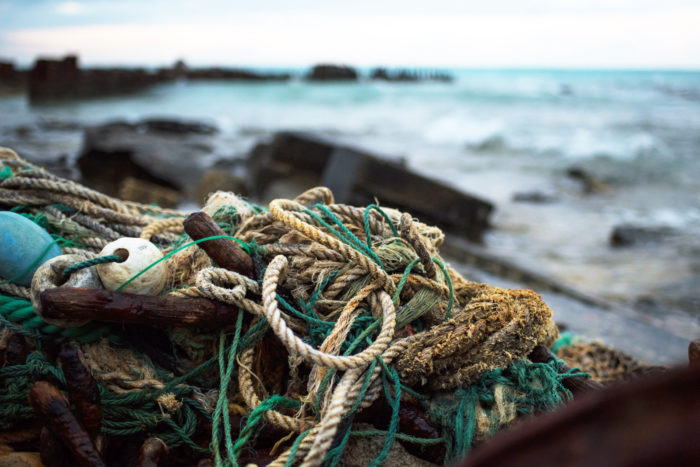
What is Ghost Gear?
Do you know what’s spookier than haunted houses and ghost stories? Abandoned fishing gear left to spend an eternity in the ocean and threatening marine wildlife!

Photo Credit: NOAA Coral Reef Ecosystem Program
What is Ghost Gear?
Ghost gear is a term that refers to any fishing gear (ranging from simple monofilament fishing line to traps to huge nets and everything in between) that is abandoned, lost, damaged, or otherwise discarded in the ocean. This kind of loss could be due to storms, accidents, breakage, or negligent behavior. Ghost gear is the most dangerous and harmful form of marine debris for marine animals like seabirds, marine mammals, sharks, turtles, and fish, and it damages coral reefs, seagrass beds, and other essential habitats. So what can we do about it?
While ghost gear is not always intentionally left to drift through the ocean forever, recreational and commercial fishers can do more to reduce the instance of lost and abandoned gear, like marking all gear with electronic tags to make recovery easier, or responsibly disposing of monofilament line when returning to land rather than tossing it overboard. Education programs can help encourage these good behaviors and policies from local, state, and federal level serve as a means for enforcement.
The National Marine Sanctuary Foundation is working with partners in South Florida to remove ghost gear through the Goal: Clean Seas Florida Keys program in Florida Keys National Marine Sanctuary. Through the program, permitted local dive operators and volunteers remove underwater marine debris, including displaced line wrapped around coral reef colonies, displaced and damaged lobster traps, and other miscellaneous marine debris. To date, the Foundation has supported the removal of more than four tons of debris and nearly two miles of displaced line from Florida Keys waters.
Individuals can reach out to their elected officials to encourage strong policies and enforcement to prevent ghost gear, and support organizations that work to remove it from the ocean once it’s there. If you think you have spotted an entangled marine animal, it is important to keep your eyes on the animal, report the stranding or injury to NOAA’s National Marine Fisheries Service, and resist the temptation to help disentangle the animal yourself — many species of marine animals are federally protected and attempts to free them without professional training can be dangerous for you and the animal.
